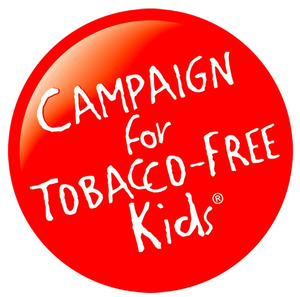Health Groups: Family Dollar Stores Should Reverse Decision to Start Selling Tobacco Products
WASHINGTON, April 25, 2012 /PRNewswire-USNewswire/ -- Leading public health organizations are calling on Family Dollar Stores to reverse its recent decision to start selling cigarettes and other tobacco products.
(Logo: http://photos.prnewswire.com/prnh/20080918/CFTFKLOGO)
The Campaign for Tobacco-Free Kids and Break Free Alliance, which works to reduce tobacco use among low-income Americans, have written to Family Dollar urging that the company immediately reverse this decision to protect its customers' health and stay true to its name as a business that values families. Other organizations calling on Family Dollar to reverse its decision include the American Academy of Pediatrics, Legacy, the National Latino Tobacco Control Network and the Inter-tribal Council of Michigan.
Tobacco use is the leading preventable cause of death in the United States, killing more than 400,000 Americans and costing the nation $96 billion in health care bills each year. Nearly 90 percent of all smokers start as children. Family Dollar's decision to sell tobacco products for the first time in its history will add to tobacco's devastating toll and hurt families – in particular, the millions of lower-income families that are Family Dollar's core customers.
Family Dollar executives told Wall Street analysts last month that the chain of 7,100 discount stores would begin selling tobacco products in the next several months.
"Given the devastating toll of tobacco use on America's children and families, we believe your decision is an enormous step in the wrong direction," the health groups wrote in a letter to Family Dollar Chairman and CEO Howard Levine.
"Selling tobacco to your customers will make it easier for them to become addicted or sustain an existing addiction and suffer the dire economic and health consequences of tobacco use. The fact that your customer base is comprised of low-income families makes your decision even more troubling. Low-income people smoke more, suffer more, spend more and die more from tobacco use…. Sales of tobacco products at Family Dollar stores will only worsen these terrible burdens and health disparities."
Smoking in the United States increasingly has become concentrated among lower-income populations. The smoking rate among low-income adults is 26.9 percent, compared with 19.3 percent for all adults, according to data from the Centers for Disease Control and Prevention. Because of their higher smoking rates, lower-income populations suffer disproportionately from smoking-caused disease and also are more likely to suffer the harmful consequences of exposure to secondhand smoke.
Lower-income smokers spend a greater share of their incomes on tobacco than do other smokers, and often have limited access to health care. They may be more likely to be diagnosed with illnesses caused by tobacco use at a later stage, after their conditions have worsened and they are in greater need of care and services. State Medicaid programs alone spend more than $30 billion a year on treating smoking-related illnesses among low-income beneficiaries.
Family Dollar's decision runs counter to a trend among pharmacies, grocers and retailers to pull tobacco products from their shelves. Big chains such as Target and Wegmans have stopped selling tobacco, and Dollar Tree stores also are tobacco-free.
The company's decision is also at odds with health care initiatives long supported by the Leon Levine Foundation, founded by Family Dollar's founder and former CEO Leon Levine. Though the foundation is wholly separate from Family Dollar Stores Inc., it is hard to ignore the contradiction between selling tobacco – and thus promoting the use of an addictive and deadly product – while simultaneously supporting health programs and institutions.
Letter from Tobacco-Free Kids and Break Free Alliance to Family Dollar Stores: http://familydollarvalues.com/fdletter.pdf
SOURCE Campaign for Tobacco-Free Kids
WANT YOUR COMPANY'S NEWS FEATURED ON PRNEWSWIRE.COM?
Newsrooms &
Influencers
Digital Media
Outlets
Journalists
Opted In





Share this article